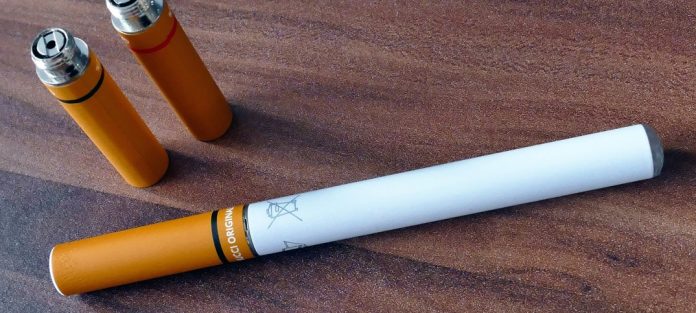The Associations FEAD CEWEP, EBRA, EERA, EuRIC, FERVER, Municipal Waste Europe and WEELABEX are calling for the ban of single-use e-cigarettes (vapes) by the end of 2024 due to the negative impact they have on the environment and the objectives of the circular economy.
E-cigarettes were first placed on the European market in 2006. They were originally developed as an alternative to traditional tobacco smoking and aimed to provide a way for consumers to inhale nicotine vapour without the harmful effects associated with burning tobacco such as tar and carbon content. Since their inception, the designs have evolved including the sale of single-use e-cigarettes, which were first sold in Europe in 2019 and were aimed at consumers looking for lower costs, smaller products and a wider range of different liquids and flavours, with or without nicotine.
All the e-cigarette devices are powered by an external or internal lithium battery, most external batteries are rechargeable via a battery charger, and internal batteries are partially rechargeable based on the device type. However internal batteries in most single-use disposable devices are not rechargeable. Initial models had a short battery life and small tank, but despite this have grown exponentially year-on-year with worldwide sales reaching USD 19.3 billion in 2019. The product design has also evolved with greater battery power, larger capacity and length of use.
These devices (subject to design differences) consist of an atomiser, a power source (the lithium battery), and a container such as a cartridge or tank filled with liquid. They are made with some of the most valuable resources on the planet – steel, aluminium, copper, lithium. They also have plastic casings containing brominated flame retardants (POPs).
Under producer responsibility regulations in the European Union, UK and EEA, these devices are classified as “Electric and Electronic Equipment” (EEE) and subject to obligations for manufacturers and/or distributors, including contributing to the provision of collection options and, end-of-life recycling. In reality however, due to a lack of awareness and/or free-riders and also poor enforcement, many producers / distributors of these devices are failing to register and so make no contribution to the WEEE treatment system.
The negative impacts on society
With the prevalence of single-use disposable e-cigarettes, the safety and impact of disposable e-cigarettes is today a growing public and industry concern, and a number of Governments have taken measures already to limit or ban vaping in their countries, including the United Kingdom, France, Turkey, India, Thailand, Mexico, and Australia. Globally, many other Governments are also debating banning or restricting these products, including banning flavoured liquids this year.
Single-use e-cigarettes contribute to local environmental damage through littering and present a danger to wildlife and water supplies. If improperly disposed of, they can release heavy metals, nicotine, and other chemicals from batteries and unused e-liquid. Over 80 harmful chemicals such as formaldehyde and metallic nanoparticles have been found in e-liquids at trace quantities [1]. In addition, the negative aspects on the health of the growing number of children using e-cigarettes is well published, with single-use disposable e-cigarettes seen as a key driver behind the alarming rise in youth vaping [2].
Of far more concern is the existence of the lithium battery, as incorrect and irresponsible disposal is a known cause of fires in collection street and domestic bins, municipal collection containers, collection waste trucks and waste management facilities. Finally, given the volume of these devices being sold today, and the call to ensure the security of critical raw materials, the loss of valuable and reusable metals and lithium through careless disposal is contrary to the global objectives for a stronger circular economy.
What is needed urgently:
The European Union has powers under REACH to impose restrictions on the use of devices that have substances identified as posing a risk to human health or the environment. Other legislation supports this through national environmental protection acts. Legal action has been taken in recent years for other single-use products such as plastic straws and bags etc. so the precedent exists and there remains no further reason for the damage that single-use e-cigarettes is causing.
Single-use e-cigarettes should be banned in Europe by the end of 2024 at the very latest.
Source: FEAD







